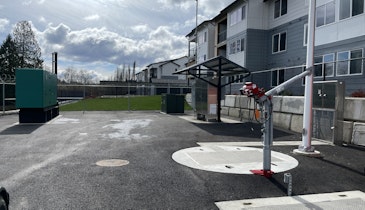Interested in Education/Training?
Get Education/Training articles, news and videos right in your inbox! Sign up now.
Education/Training + Get AlertsA good media relations strategy is an overlooked but often very beneficial way for companies in our industry to raise their visibility and attract new customers. Better still, you can implement a basic media relations strategy for no cash outlay.
If you’re not engaged with the media, you’re missing the opportunity to get your company mentioned in positive ways, and also to counter potentially one-sided stories that portray your business or the industry in a negative light.
Given the way the onsite wastewater industry is often portrayed in the media, it’s understandable why a business owner might be leery about working with them. But the reality goes beyond the simple “us vs. them” dichotomy.
Newspapers and radio/TV stations are not out to get us. Contrary to how it may appear, most really want to provide a balanced perspective on stories they report. If they aren’t presenting your point of view on an issue that affects your business or reputation, chances are it’s because they don’t know who you are.
Most media outlets are not in the business of muckraking at all. In fact, they may think twice before printing anything negative about local businesses, if for no other reason than they want those firms’ advertising dollars. Most newspapers and other news outlets actually offer a number of ways for you to get your name in front of the public – at no cost to you.
Developing a good media strategy is not difficult, but it can pay off in new customers and greater awareness of the good things you are doing. Here’s how to start:
Make a list of all of newspapers and other media outlets in your area. Think broadly, including weekly or monthly papers, local radio stations, even neighborhood newsletters or church bulletins. And don’t forget Internet sites.
Spend some time getting to know each publication/station. It might make sense to divide the list into two sections – those unlikely to publish negative news that affects you, and those that might do so. Your strategy for each list will be a little different.
Call the newspaper editors and stations’ news directors on your list of “friendlies.” Most will welcome a call. Learn about deadlines for columns or press releases. Find out to whom you should address any item you submit, and the format they prefer.
Also call the news editors at “potential foes.” Ask the editor which reporters might cover onsite wastewater news. Reach out to those reporters. Tell them what you do and offer your expertise on wastewater topics. Don’t hesitate to offer them a tour of your business (but don’t take it personally if they decline). When speaking with the editor, also find out how you can submit a letter to the editor or an opinion piece.
Once you have your media list in place, here are a variety of ways you can use it to your advantage in getting your name out front.
Never miss an opportunity to promote your good work, especially to the “friendlies.” Look for milestones around which you can build a news release – perhaps your 500th installation, your 10-year anniversary in business, or an open house. Set a goal of getting your name in the local media a couple of times per year.
Be proactive. Pay attention to events in your community and how your business or your customers might be affected. Call a reporter and suggest an angle to the story where your expertise comes into play. It could be how a new regulation will affect your business, or how you are advising your clients to prepare for an impending flood. Don’t be discouraged if your story doesn’t run or if your name is not mentioned. Even if you didn’t get the coverage you wanted, most reporters will appreciate your initiative and will be more likely to call you in the future.
If you have submitted something for publication, or if a reporter calls for your opinion, always follow up. If your article or interview with a reporter does not appear, it’s okay to ask why. If it does run, it’s good manners to send a thank-you note.
Believe it or not, the media can be your friend – if you have a plan and put it into action. Or you can sit around and wonder why the only news you see about our industry is negative.
About the author
Eric Casey is executive director of the National Onsite Wastewater Recycling Association. He can be reached at 800/966-2942 or wecasey@nowra.org.





